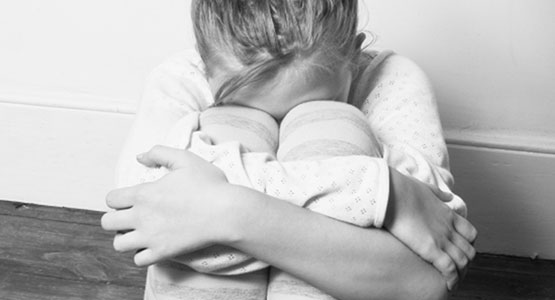The aim of the new act is to provide recourse for victims of the more insidious elements of a domestic abuse relationship which can be just as harmful as or even more harmful than physical abuse.
 Under the new legislation, an accused person can be convicted of an offence if they engage in a course of behaviour which is abusive of a partner or ex-partner, physically or psychologically.
Under the new legislation, an accused person can be convicted of an offence if they engage in a course of behaviour which is abusive of a partner or ex-partner, physically or psychologically.
A reasonable person must consider that the course of behaviour would be likely to cause physical or psychological harm, to that particular individual. The court is therefore entitled to take account of any particular vulnerability of that complainer in considering whether there has been physical or psychological harm. The accused person must intend that their course of behaviour causes the complainer to suffer or else they must be reckless as to whether it does or not.
Therefore, whilst the judge must still consider the objective “reasonable person”, the new legislation brings into play the subjective element of that individual complainer’s characteristics and circumstances.
The new legislation provides a further remedy in criminal law
Whilst there is no doubt that many judges are vastly experienced in dealing with harrowing cases, these subtle changes in the legislation will perhaps mean that there is likely to be more evidence required about an individual complainers characteristics, mind-set and responses. The additional training that has been received by judges and sheriffs in this area can only be a good thing to assist judges in a careful and considerate approach to the complainer in the taking of evidence in the circumstances.
Family Aspects
In family cases there are often elements of domestic abuse and one partner can be particularly vulnerable. There are existing remedies in family law including interdicts, exclusion orders and non-harassment orders. The new legislation provides a further remedy in criminal law for the more subtle psychological aspects of domestic abuse as opposed to simply the physical acts of assault or stalking for example. It is positive that there is now another route open for consideration to a victim of domestic abuse. It is imperative that each case is considered individually, particularly where there are vulnerable partners or children involved.
Solutions to ensure that the children are not lost in the process
In domestic cases the impact on the family, and in particular, the children should never be lost sight of. It is generally the case that in domestic criminal cases for special bail conditions to be imposed. The inevitable consequence of that is difficulty in organising and caring for children. Many experienced judges are all too aware of such difficulties and keen to explore solutions to ensure that the children are not lost in the process; hopefully this further training will touch upon these matters also.
Often, when couples separate there is behaviour on both sides and one party is not always solely to blame. The new legislation is likely to be applied strictly. The complainer’s view on whether they wish their partner to be prosecuted or not is immaterial; it is the prosecutor’s view of what is in the public interest that will dictate how matters are to proceed.
In that context, consider a case where both parties are arguing, shouting and shoving each other. One party picks up an object and breaks it. The other leaves the property and calls the police. The person left in the property is arrested and detained by police overnight to appear in court the next morning. They are bailed and subject to special conditions not to approach or contract their partner. At best, that person’s car keys, work clothes and personal belongings are all within the family home which they now cannot access. At worst they cannot speak with their partner to make family arrangements such as caring for their children.
Increased training for judges on the intricacies and difficulties of domestic abuse cases will enable better understanding and a willingness to deal with cases sensitively in so far as the taking of evidence but also the wider issues associated with the interaction of vulnerable people and children with the criminal justice process.
There is likely to be even more examination in what is seen, described and evidenced in contentious family law disputes and divorces and the potential cross over into what could be described as that insidious nature of an abusive controlling relationship which could give rise to criminality. That is why we at BTO have an integrated team working in both civil and criminal disciplines to provide the best advice depending upon the circumstances.
Blog by BTO Family Law Partner Lesley Gordon and BTO Criminal Solicitor Advocate Alasdair Gillies .





